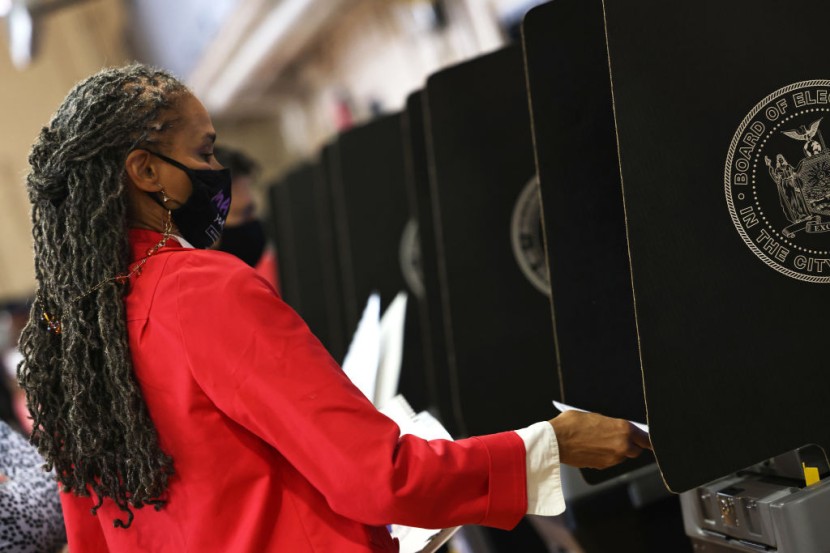
Polls have closed in NYC's first ranked-choice mayoral election. Voters may have to wait for weeks for the results.
New York City Democrats picked their candidates for mayor on Tuesday. The primary race is regarded as an indicator of how voters balance priorities involving police reform and crime. The diverse field also entails the possibility of New York City sending its second African-American candidate or its first woman candidate into the office of the mayor.
Primaries
Citizens of New York cast their ballots to determine who will be the next mayor of NYC. However, the results will not be immediately known. This could be one of the most consequential elections in the recent history of NYC. With an increased number of absentee ballots in the tightly contested Democratic race and the new ranked-choice voting system, locals will perhaps have to wait until July for a full count, reported USA Today.
The primaries are the largest test yet of the city's new ranked-choice voting system. The system allows voters to list up to five candidates in a race in favored order, reported The Wall Street Journal.
As ranked-choice voting was conducted in New York City, there were a number of hiccups. The process of ranked-choice voting is fairly straightforward. However, according to voters, figuring out how to rank very similar candidates is not, reported CNN.
Tuesday's Democratic primary's winner is nearly certain to become mayor in NYC's November general election at a time of unique challenges: Flattened tourism, recuperating from high unemployment, and a chaotic school year of remote learning prompted by the novel coronavirus pandemic. Simultaneously, if a consistent rise in violent crime continues to take place, Mayor Bill de Blasio's successor will confront a series of gunnings and hate crimes that continue to threaten the city's recuperation.
Mayor Bill de Blasio is on a term-limited tenure and will be exiting following eight years in office. This leaves the door of Gracie Mansion open for newcomers who would like to lead the United States' largest city. Due to the fact that New York City leans Democratic, the two GOP candidates have not attracted as much attention as the Democrats.
The Democratic mayoral primary listed 13 candidates on the ballot. The GOP race has a mere two. The Democratic winner on Tuesday is all but sure to conquer the general November election.
According to some voters' reflection, the election was counterproductive for smaller down-ballot races, and "overwhelming." However, they also noted, for the first time, a feeling of obligation to do some research regarding the races that are not getting top news billing and a sense of opportunity.
Crime frequently topped polls as a primary concern among voters. It is an issue that bolstered Brooklyn Borough President Eric Adams, an ex-police captain who ran nearly singularly on avow of the restoration of safety to the city, into first place.








